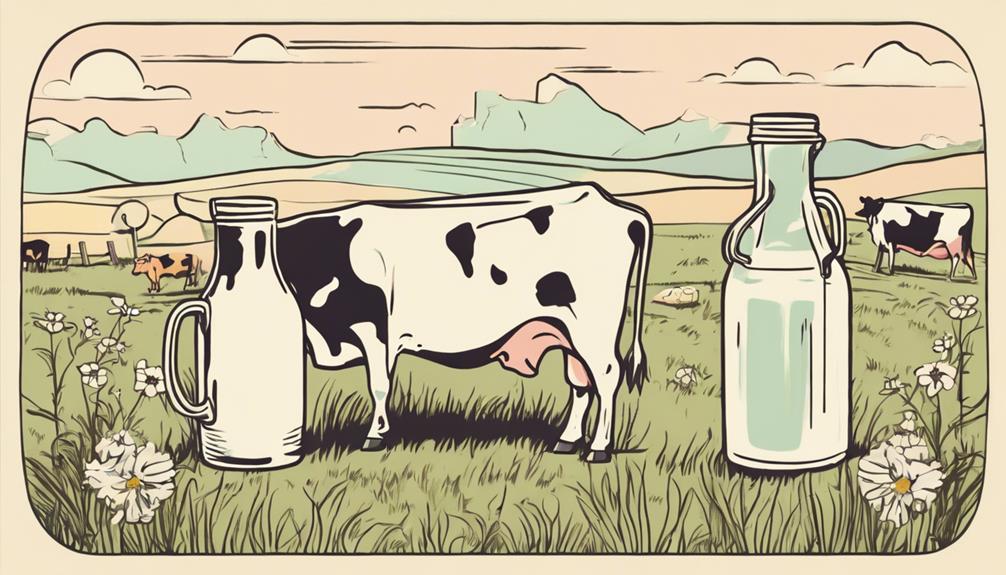See All: Cheese Making
Watch How To Do This Here…
YES! You can make cheese at home. Take our FREE 4-Part video training series to simplify cheesemaking for everyone. No waste. No overwhelm. No missing steps. You can make delicious, healthy cheese, even if you only have access to grocery store milk and regular kitchen equipment…
Click Here To Watch Step By Step Now
“I’m a small-scale cheese maker living in Sydney, Australia. Lately, I’ve been wondering how the diet of my goats affects the milk I use for cheese making. I’ve heard that what they eat can change the taste and quality of the cheese, but I’m not exactly sure how or why. Can you shed some light on this?” Thanks, Bruce, Sydney, Australia.
How Does The Diet Of The Animal Affect The Milk Used In Cheese Making?
Hi Bruce, that’s a fantastic question! Understanding how the diet of your goats impacts the quality and characteristics of their milk is crucial for producing high-quality cheese. Let’s explore this in-depth to give you all the knowledge you need.
The Basics: Why Diet Matters
The diet of your goats directly influences the milk’s flavor, texture, and composition. For example, animals that graze on wild herbs and grasses often produce milk that has a complex flavor profile, which can be carried over into the cheese. Conversely, a diet lacking in variety might result in milk that’s less rich in flavor and nutrients.
Nutritional Composition
The milk composition is affected by the types of proteins, fats, and other nutrients present in what the goats are eating. Here’s how:
- High-Quality Forage: Rich in essential fatty acids and vitamins, leading to milk with better fat content and nutrition.
- Legumes and Grains: Can increase protein levels but might also impact the milk’s flavor, sometimes making it taste more “barnyard” like.
- Supplemental Feeds: Vitamin and mineral supplements can correct deficiencies but must be balanced to avoid altering the milk’s natural taste too much.
Impact on Flavor
Diet plays a significant role in the aromatic compounds found in milk. For instance, goats grazing on wild herbs like clover and thyme often produce milk that carries subtle herbal notes, translating into unique cheese flavors. On the other hand, a diet heavy in silage can lend a somewhat sour or fermented taste to the milk.
Texture and Consistency
The milk’s fat and protein levels influenced by diet affect the texture of the cheese. A balanced diet rich in high-quality forage will generally produce milk with an ideal fat-protein ratio, crucial for achieving a creamy, smooth cheese texture. An unbalanced diet might result in cheese that’s either too hard or too runny.
Seasonal Variations
The diet of your goats can change with the seasons, leading to variations in milk composition and cheese quality throughout the year. In the lush spring months, when fresh pasture is abundant, you might find your cheese has a bright, fresh flavor. During the winter, when you rely on stored feeds, the cheese can take on richer, more robust flavors.
Examples from Practice
Here’s a practical example for you, Bruce. Let’s say during summer, your goats are grazing on a pasture mixed with wildflowers and herbs. The resulting milk might have delicate floral notes, creating a distinctive cheese flavor profile. Conversely, if you switch to feeding them primarily grain during winter, you’ll likely notice the cheese becomes denser and less aromatic.
Health and Welfare
The overall health of your goats, influenced by diet, also affects milk quality. Healthy animals produce better milk, simple as that. A well-balanced diet ensures they get all the necessary nutrients, leading to optimal milk production in terms of both quality and quantity.
Milk Yield
A balanced diet directly affecting milk yield is another critical aspect. High-yielding goats require diets rich in energy and proteins. However, while increased yield is favorable, it should not come at the expense of milk quality.
Specific Dietary Inclusions to Consider
For enhancing milk for cheese making, consider these specific dietary inclusions:
- Flaxseed: Boosts omega-3 fatty acids in milk, which can improve cheese flavor and texture.
- Alfalfa: High in protein and minerals, beneficial for both milk yield and quality.
- Beet Pulp: Good source of fiber, enhancing milk flavor without compromising yield.
Local Flora
Your location in Sydney, Bruce, gives you a unique advantage. The native flora can add regional uniqueness to your cheese, something that many artisanal cheesemakers strive for. Utilizing local plants and herbs in your goats’ diet can imbue the cheese with distinctive flavors and aromas, making your product stand out in the market.
Conclusion
In summary, the diet of your goats is pivotal in determining the taste, texture, and overall quality of the cheese. From nutritional composition to seasonal changes and specific dietaries, every factor plays a role. By paying close attention to what your goats eat, you can significantly influence the final product, crafting a cheese that’s not only delicious but also unique to your farm.
Final Thoughts…
Bruce, thanks for sending in such an insightful question. Understanding and optimizing the diet of your goats will not only improve the quality of your cheese but also give you a unique product that captures the essence of your local environment. Keep an eye on their forage, seasonality, and any supplements you add, and you’ll be well on your way to creating exquisite cheese.
Return To: Cheese Making
Free Step By Step Cheese Making Videos…
YES! You can make cheese at home. Take our FREE 4-Part video training series to simplify cheesemaking for everyone. No waste. No overwhelm. No missing steps. You can make delicious, healthy cheese, even if you only have access to grocery store milk and regular kitchen equipment…

